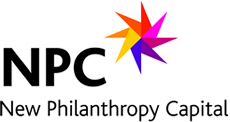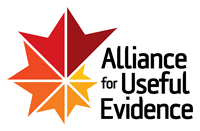Resources » Topic » CSR and Responsible Business
Training and Courses
Books and Guides
Making Sense of Data and Information in the Social Sector, from Markets for Good, is a collection of selected readings from the previous year with ideas about how to upgrade the system for sharing knowledge in the social sector. The b-Book provides a range of perspectives on the most critical data-related challenges facing the social sector, and how these challenges can be addressed. Posts were chosen for their high readership, topic diversity, and thought leadership. The authors debate new and recurring hurdles in the social sector, like capacity and capital constraints; how qualitative data, including stories and beneficiary insights, can be incorporated into data-driven decision processes; and big-, medium-, and small-data management.
David Henderson examines the Corporate Social Responsibility (CSR) doctrine, subjecting it to fundamental criticisms. In this controversial text he argues that, far from being harmless, its adoption threatens prosperity in poor countries as well as rich. It is likely to reduce competition and economic freedom and to undermine the market economy.
External Databases and Resources
More than 6400 publications have now been selected by TSRC for inclusion in the Third Sector Knowledge Portal - an easy-to-use online library of research, evidence, and analysis.
It has been developed by TSRC in partnership with the British Library and the Big Lottery Fund, and brings together over 6000 works such as: impact reports from third sector organisations; academic research projects; government studies; and more, in one collection of downloads, links and summaries.
ICT sector companies are working together to improve the practice of sustainability and social responsibility within their supply chains. To this end, the GeSI Supply Chain Working Group has teamed with the Electronic Industry Code of Conduct (EICC) Implementation Group and other groups to develop a set of tools that satisfy broad industry needs. These tools include this questionnaire, a risk assessment tool, a common approach to auditing, and additional web- based resources. Deployment and use of this Self Assessment Questionnaire is expected to benefit both industrial customers and their suppliers by:
- Raising supplier awareness about the importance of sustainability principles
- Clarifying ICT customer expectations regarding their suppliers’ sustainability practices
- Supporting ICT customer assessments of supplier characteristics and potential risks
- Enabling suppliers to evaluate, improve, and communicate their performance
- Reducing the burden on suppliers of responding to multiple questionnaires
Training and Courses
The Wharton School at the University of Pennsylvania’s undergraduate degree program offers business and more — an innovative program that combines business and liberal arts on one Ivy League campus. Social impact courses for undergraduates span areas such as health care management, finance, management, economics and public policy, legal studies and business ethics. A flexible schedule allows students to pursue academic interests within Wharton and beyond.
Wharton’s undergraduate program also offers a secondary concentration in Social Impact & Responsibility, housed in the Legal Studies and Business Ethics department.
Courses include:
- Corporate Responsibility and Ethics
- Health Care Quality and Outcomes: Measurement and Management
- International Business Ethics
- Knowledge for Social Impact — Analyzing Current Issues and Approaches
- Social Impact & Responsibility
The Australian School of Business at the University of New South Australia offers a Graduate Certificate in Social Impact focuses on building the professional capacity of social managers and entrepreneurs of the future, across the corporate, government and third (not-for-profit) sectors, enhancing their capacity to lead organisations creating social and environmental value and to operate in a changed cross-sector social landscape where the dynamism of the market is also directed at social innovation.
The Erasmus Centre for Strategic Philanthropy (ECSP) at the Erasmus Universiteit Rotterdam offer undergraduate and postgraduate courses, including in Corporate Social Responsibility (CSR) and Non-Profit Management, and Effective management of philanthropic “NGO” organisations.
INSEAD Business School offers an Executive Master in Consulting and Coaching for Change, a program about human relations and behaviour applied to management. Aimed at HR professionals, coaches, consultants and executives seeking new ways to make an impact on their organisation, this programme integrates business education with a range of psychological disciplines, and enables an understanding of yourself and others at a fundamental level – and to use that knowledge to create more effective organisations.
Working Papers and Research
This publication from the European Venture Philanthropy Association (EVPA), written by Dr Leonora Buckland and with the support of the London Business School, explores how European banks can use their core strengths –financial acumen, investment skills, capital and networks– to actively generate social impact by engaging in venture philanthropy and social investment. It is a compilation of numerous interviews with executives at banks, as well as archival research.
This paper by Elise Wach from the Institute of Development Studies analyses some of the current approaches and frameworks for evaluating ‘Inclusive Business’ impacts. It finds that while they shed light on the complex network of effects that businesses have and the ways in which some firms are attempting to contribute to development, they are unable to provide information about the actual impacts of business activities. More, higher quality, and less partial ‘Inclusive Business’ evaluations are needed to better enable us to harness the potential for business to contribute positively to development.
This discussion paper, by Tim Dixon with Andrea Colantonio and David Shiers at the Oxford Institute for Sustainable Development (OISD), examines the evolution of the concepts of Socially Responsible Investment (SRI) (or Responsible Investment (RI)) and Responsible Property Investment (RPI) and compares their meanings with Corporate Social Responsibility (CSR) (or Corporate Responsibility (CR)) and Corporate Governance (CG) within the context of the wider sustainability agenda. The increasing emphasis of financial institutions and private sector real estate developers to focus on urban regeneration projects in the UK and Europe is examined in the context of (1) the growth of public and private partnership arrangements (PPPs), one of a range of joint venture and partnership vehicles which have emerged, and (2) real estate asset allocation by financial institutions as part of a diversified investment portfolio.





